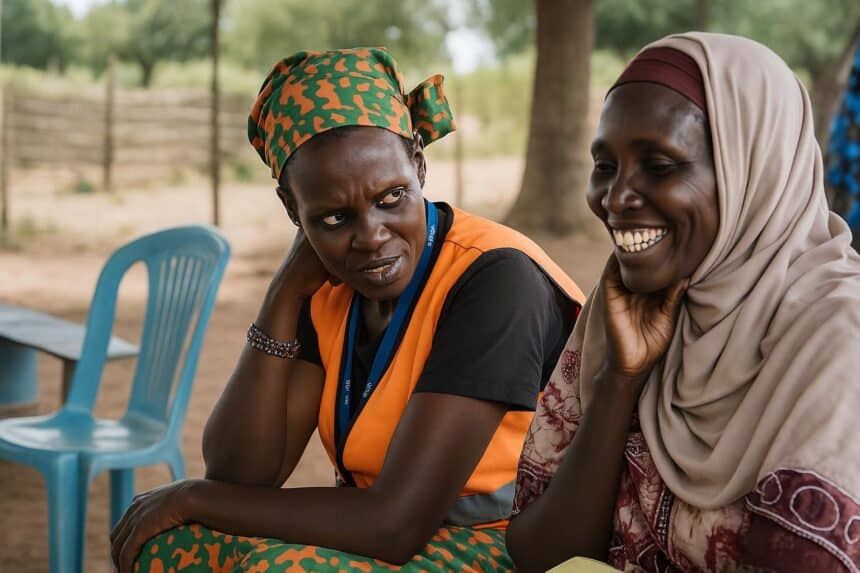Urgent backing for mental-health aid
On World Mental Health Day, the International Organization for Migration sent a clear message from Brazzaville: nations cannot delay fresh money for psychosocial care anymore, especially where floods, conflicts or sudden displacement leave families stripped of certainty and hope.
The UN agency’s new director general, Amy Pope, framed the choice bluntly: without consistent mental-health services, people who have already lost homes, papers or loved ones struggle to regain dignity, energy and the basic drive to move forward after disaster.
Amy Pope links care to resilience
“IOM is urging governments, donors and humanitarian partners to put cash on the table now so nobody is forced to cope alone,” reads the communiqué dated 10 October, echoing calls humanitarian workers have repeated for years yet still see unanswered gaps.
She insisted that mental-health provision is often the very first service survivors request, yet too often the last line in a budget. The agency believes timely counselling cushions children against lifelong stress, prevents risky coping behaviours and keeps entire neighbourhoods cohesive during prolonged emergencies.
Just two percent of health budgets
According to the note released Tuesday, mental-health programmes absorb only around two percent of national health spending worldwide, a proportion that has barely moved in years. The figure, Pope argues, no longer matches the scale of modern climate shocks, protracted conflicts or record human displacement.
For overstretched treasuries, the return on investment is persuasive: every dollar placed in community counselling, the IOM says, multiplies through higher productivity, safer migration journeys and fewer hospitalisations for untreated trauma. Yet fundraising priorities still lean heavily toward visible infrastructure and acute medical kits.
Migrants confront layered obstacles
Even when money is secured, migrants and internally displaced persons can meet a maze of hurdles before seeing a therapist: unfamiliar legal systems, language barriers, outright discrimination, or the fear that seeking help could jeopardise immigration status or access to work.
These added pressures, the communiqué warns, can push stress levels beyond breaking point, prolonging grief and making integration efforts harder for host communities that themselves may be recovering from disaster. Tailored mental-health support, the IOM insists, benefits locals and newcomers alike.
Projects stalled in seven nations
IOM staff cite a concrete casualty of underfunding: in 2025 alone, roughly twenty planned humanitarian interventions were disrupted or downsized across Chad, Mozambique, Myanmar, Niger, Ukraine, Afghanistan and Bangladesh because the mental-health component could not be financed in time.
Counsellors had been recruited, curricula drafted, mobile clinics mapped out. Then pledges slowed, forcing field teams to postpone activities or fold them into general aid packages where specialised staff were not available. “The will is there; the cash is not,” summed up one project officer.
IOM’s seventy-year migration mandate
Founded on 5 December 1951 and formally absorbed into the United Nations family in 2016, the IOM now operates in 171 states, providing technical advice to governments, transportation for voluntary returns, and emergency assistance when populations shift overnight.
That global reach, management argues, positions the organisation to mainstream mental-health services wherever it already distributes food, water or shelter. Integrating care, rather than adding it as an optional extra, could close gaps swiftly without duplicating logistics.
Perspective for Congo’s communities
In Congo-Brazzaville, where heavy rains have triggered recurrent flooding along the Congo and Kouilou rivers, local authorities already cooperate with IOM on displacement tracking. The new appeal opens the door for additional mental-health projects that could reinforce existing disaster-response plans without straining provincial budgets.
Civil-society actors in Brazzaville and Pointe-Noire believe such support would complement national priorities on youth employment and community safety. By funding counsellor training now, they argue, authorities could fortify social resilience ahead of the next cyclone season and maintain steady progress toward universal health coverage.
Regional health economist Jérémie Mbemba notes that every franc invested in early psychological support reduces later spending on policing, court proceedings and hospital beds. “Mental health is the backbone of community stability,” he says, arguing that pooling donor funds through one transparent window could accelerate deployment.
For residents scrolling news on mobile phones, the takeaway is simple yet pressing: emotional wounds may be invisible, but they shape recovery as surely as bricks and vaccines. The IOM message from Brazzaville turns that insight into a plan—one that hinges on collective funding decisions made today.
The agency says it will spotlight mental-health funding in upcoming donor scorecards and publish clear progress updates, so citizens can measure how much assistance ultimately lands in the hands of frontline counsellors.






















